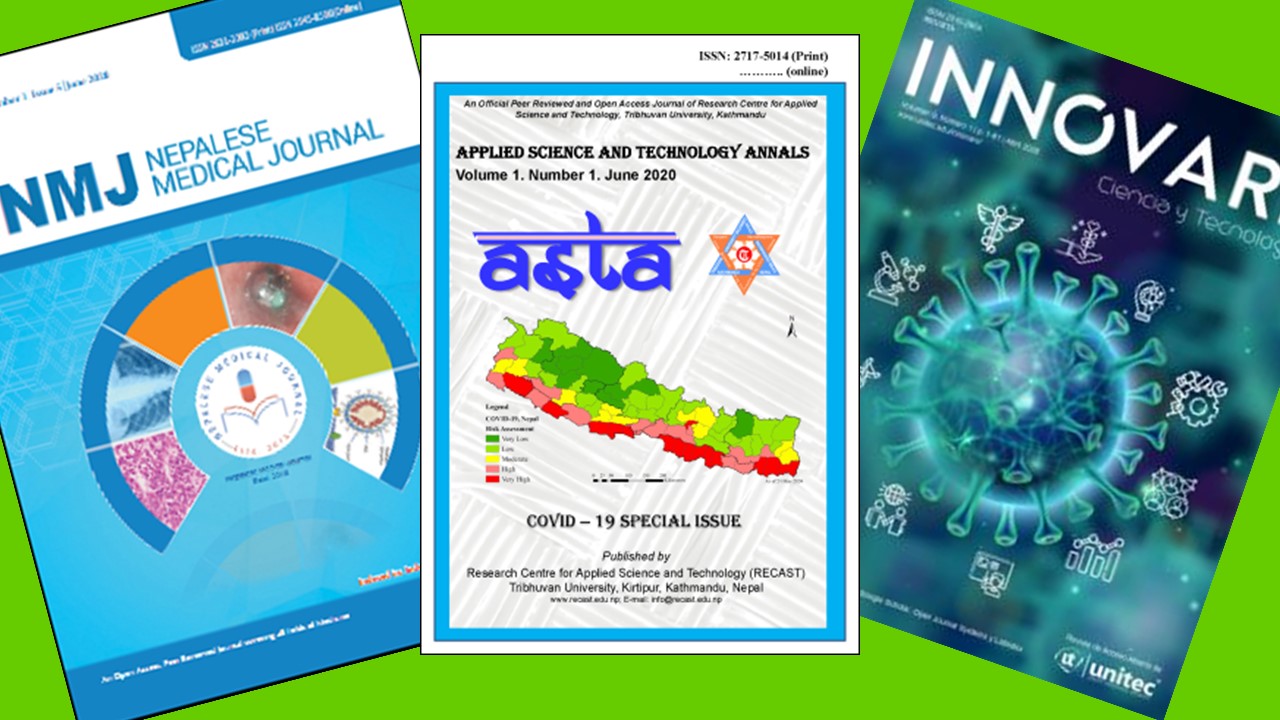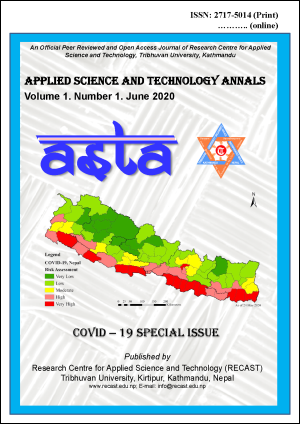
Pandemic publishing: highlighting research about the COVID-19 pandemic published on the Journals Online platforms
COVID-19 has sparked novel research questions, altered research systems, and presented many scholars with more desk time than ever before. In this post, Alaka Bhatt showcases a handful of the many research papers that been published in South Asia and Central America about the COVID-19 pandemic.
The COVID-19 pandemic is impacting people and communities throughout the world. How countries respond has potentially far-reaching and long-term consequences for their populations. But every country and situation are different so it is essential that decision makers can draw on research and evidence that is relevant to their local context.
Ensuring that high-quality research is visible, wherever it is conducted and published, is a key goal of the Journals Online (JOLs) platforms, which were established by INASP and local partners. These national- and regional-level platforms host locally published research in order to increase its global visibility and support the quality and rigour of the journal publishing processes.
Since the start of the pandemic, journals on the JOLs platforms across South Asia, Central America and Africa have shared research, reflections and expert opinions on not just the medical aspects of the virus and potential treatments but also the implications on the economy, food production and wider social issues.
To date, over 200 articles concerning the COVID-19 pandemic have been published across the JOLs and it has been the topic of some journal special issues. In this blog post we highlight selected articles from Nepal, Bangladesh, Sri Lanka and Honduras, and provide links to other articles on the theme published across the JOLs platforms during the pandemic.
Nepal – Impacts of COVID-19 on Nepalese Economy:
Applied Science and Technology Annals (ASTA) is a peer-reviewed journal that is published by the Research Centre for Applied Science and Technology, at Tribhuvan University, in Nepal. During the pandemic the journal released a special COVID-19 issue. Satis Devkota, a US-based researcher whose research expertise includes health economics, applied economics, and development, published his article Impacts of COVID-19 on Nepalese Economy in this special issue.
Devkota examines the consequences of the pandemic for Nepal’s economy, and the hardships Nepalese people are facing. In particular he pinpoints the escalation of the pandemic in Nepal when an influx of Nepali migrant workers returning from India transmitted the virus to 1,811 people by June 1st 2020.
- Read the full article: DOI: https://doi.org/10.3126/asta.v1i1.30283

Bangladesh – Knowledge, attitude and practices among the inhabitants of Lahore, Pakistan towards the COVID-19 pandemic: an immediate online based cross-sectional survey while people are under the lockdown:
Like Applied Science and Technology Annals, the Bangladesh Journal of Medical Science has also published a special COVID-19 issue. However, this journal took a slightly different approach of issuing articles one by one as the research emerged so that the latest relevant research, from a variety of authors from around the globe, could be showcased as soon as possible. One article investigates the knowledge attitudes and practices towards COVID-19 in Lahore, Pakistan during the pandemic. The article concludes that there is a need to raise awareness of COVID-19 amongst the local population.
- Read the full article: https://doi.org/10.3329/bjms.v19i0.48169
Nepal – Statin Drug Therapy May Increase COVID-19 Infection:
Medical aspects of the virus is also, of course, a common theme of published research. One example is this viewpoint from Nepal published in the Nepalese Medical Journal, which is an internationally peer reviewed health science journal. The article entitled Statin Drug Therapy May Increase COVID-19 Infection has been downloaded over 850 times since April 2020. Authored by Dr. Sanjaya Kumar Shrestha, from the Patan Academy of Health Sciences, the article examines relevant research from around the world and proposes that statins may increase COVID-19 infections.
- Read the full article: https://doi.org/10.3126/nmj.v3i1.28256
Sri Lanka – Impacts of COVID-19 on the Agri-food Sector: Food Security Policies of Asian Productivity Organization Members:
Many Sri Lankan Journals have published items relating to the pandemic, including the Galle Medical Journal, Sri Lanka Journal of Surgery, Sri Lankan Journal of Medicine, and the Sri Lankan Journal of Anaesthesiology. However, publications are not only limited to medical journals. The impact of COVID-19 extends to other sectors, including agriculture. For example, an article titled Impacts of COVID-19 on the Agri-food Sector: Food Security Policies of Asian Productivity Organization Members, authored by Shaikh Tanveer Hossain, highlights the potential risks the agri-food sector is facing as a result of the containment measures introduced during the COVID-19 pandemic. The report outlines policy actions and responses that members of the Asian Productivity Organization are taking to protect food security.
- Read the full article: http://doi.org/10.4038/jas.v15i2.8794
Honduras – “Food and nutritional recommendations for good health during the epidemic COVID-19” (“Recomendaciones alimentarias y nutricionales para la buena salud durante el COVID-19”)
The COVID-19 pandemic is global, but differing country contexts means that the disease is advancing across vastly different backdrops. In Honduras, this means a situation where there are weak health systems, lack of advanced technology, unequal resource access, and food and nutritional insecurity. The article, Recomendaciones alimentarias y nutricionales para la buena salud durante el COVID-19, which has been downloaded nearly 3,000 times, is a wonderful example of context-specific research. It addresses the vital issue of food and nutritional security by presenting recommendations for a healthy diet against COVID-19, adapted to the Honduran population.
- Read the full article: https://doi.org/10.5377/innovare.v9i1.9663
These papers represent just a handful of the insightful research that has emerged on the JOLs platform during the pandemic. You can see more articles in our regularly updated spreadsheet here.
More about the Journals Online project.
Thank you to Sioux Cumming, Programme Specialist responsible for the Journals Online work, for advising on this blog post.

 Previous Post
Previous Post Next Post
Next Post


